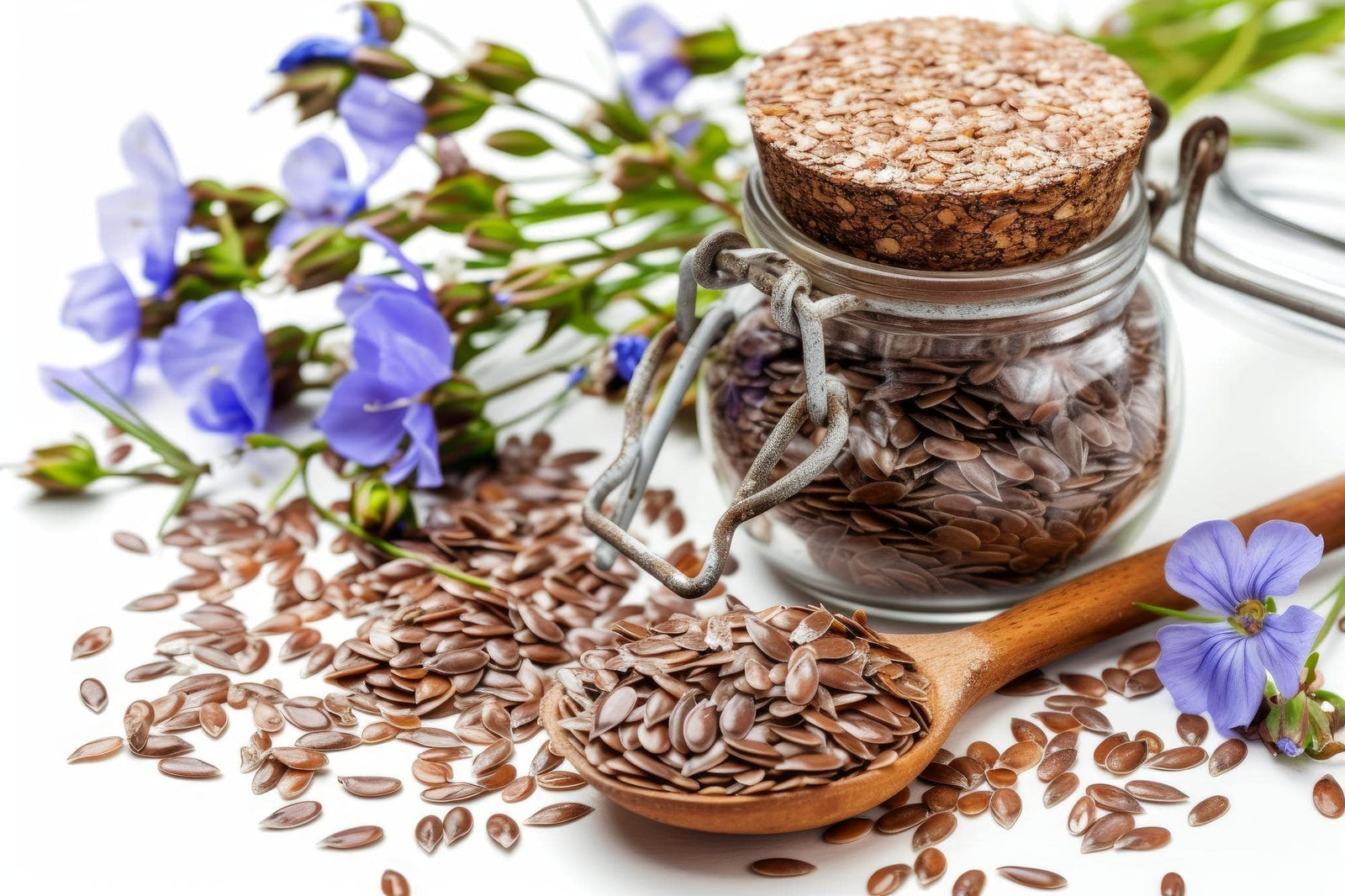
December 10, 2016 2 min read
Origin of flaxseed
Flaxseed, also known as linseed, is sourced from the flax plant. The plant itself is cultivated for its seeds as well as its fiber. The plant was first cultivated as early as 3000 BC in Mesopotamia where it was believed to possess significant health benefits. Through the course of history, the flax plant enjoyed widespread use in ancient Greek cuisine and in ancient Roman medicine. Its historical medicinal uses include being used as a laxative as well as an expectorant responsible for soothing irritated tissue, controlling coughs, and even relieving pain.

Health benefits of flaxseed
There are two main types of flaxseeds, golden and brown, both having very similar nutritional profiles. In appearance, the seeds are a little larger than sesame seeds and contain good supplies of omega 3 fatty acids, dietary fiber, and lignans. Omega 3s are essential fatty acids that cannot be produced by the body, needing instead to be acquired through diet. Omega 3s are known to possess heart-healthy benefits including minimizing inflammation and regulating heartbeat.
Flaxseed is a significant source of both soluble and insoluble fiber which collectively offer cholesterol-lowering effects while also contributing to stabilized blood sugar levels. Additionally, dietary fiber is also important for intestinal and digestive health.
Lignans are fiber-like compounds that possess anti-carcinogenic properties. Lignans in flaxseed are thought to provide some protection against certain cancers by blocking enzymes that may be involved in hormone metabolism. Among commonly consumed foods, flaxseeds are thought to be the optimal source of lignans. They are naturally gluten-free, so when processed correctly they offer a possible dietary supplement to people who suffer from gluten sensitivities or celiac disease.
Storing flaxseed
The seeds may be eaten whole, sprouted, or ground and can be included in meals and baked goods to add a nutty flavor as well as extra nutrition. However, some people find the ground variety more convenient since chewing whole flaxseeds can be somewhat difficult. Additionally, grinding the seeds can greatly increase their digestibility. At the same time, it is important to remember that ground flax seeds have a shorter shelf life than their whole seed counterpart, therefore it is always best to grind the seeds just prior to use.
When buying and storing flaxseed, make sure to purchase ground varieties that are packaged in gas flushed, light protective pouches, and refrigerate after opening. This practice will let ground flaxseed stay fresh for up to 6-16 weeks. For whole flaxseed, the contents should be stored in an airtight container that is placed in a dark, dry, and cool spot, or in the refrigerator. When placed in the refrigerator, whole flaxseeds can last up to a year. Ground flaxseed should be refrigerated.
When using flaxseeds for cooking, whole or ground seeds may be sprinkled onto breakfast cereals and salads, added into baked goods such as biscuits, muffins, bars, and breads, or included in smoothies to radically increase the fiber and nutritional content.
Recipes:
Thanks for reading this Be Still Farms Blog article. To sign up for more news/articles and/or recipes, click here. For more about us, click here. To shop our certified organic products, click here.
Please comment and share and we look forward to serving you in the future!
Comments will be approved before showing up.

January 27, 2025 3 min read
Flaxseed, the tiny yet powerful superfood, is packed with nutrients that can support weight loss. From curbing hunger to stabilizing blood sugar, this guide dives into the science of how flaxseed can help you shed those extra pounds.

December 11, 2024 3 min read
Discover three quick and easy soup recipes featuring organic small red beans. From a classic vegetable soup to a creamy potato blend, these wholesome recipes are perfect for chilly days and busy weeknights. Packed with flavor and nutrition, these soups will warm your heart and soul this winter!

December 06, 2024 3 min read
This vibrant and nutritious Green Lentil Salad combines tender lentils with grilled chicken, fresh vegetables, and a zesty lemon dressing. Packed with protein, fiber, and essential vitamins, it’s the perfect healthy meal for any time of day.
© 2026 Be Still Farms- Real, Fine Organics.
Privacy | Terms | Refund Policy | Organic Certification
